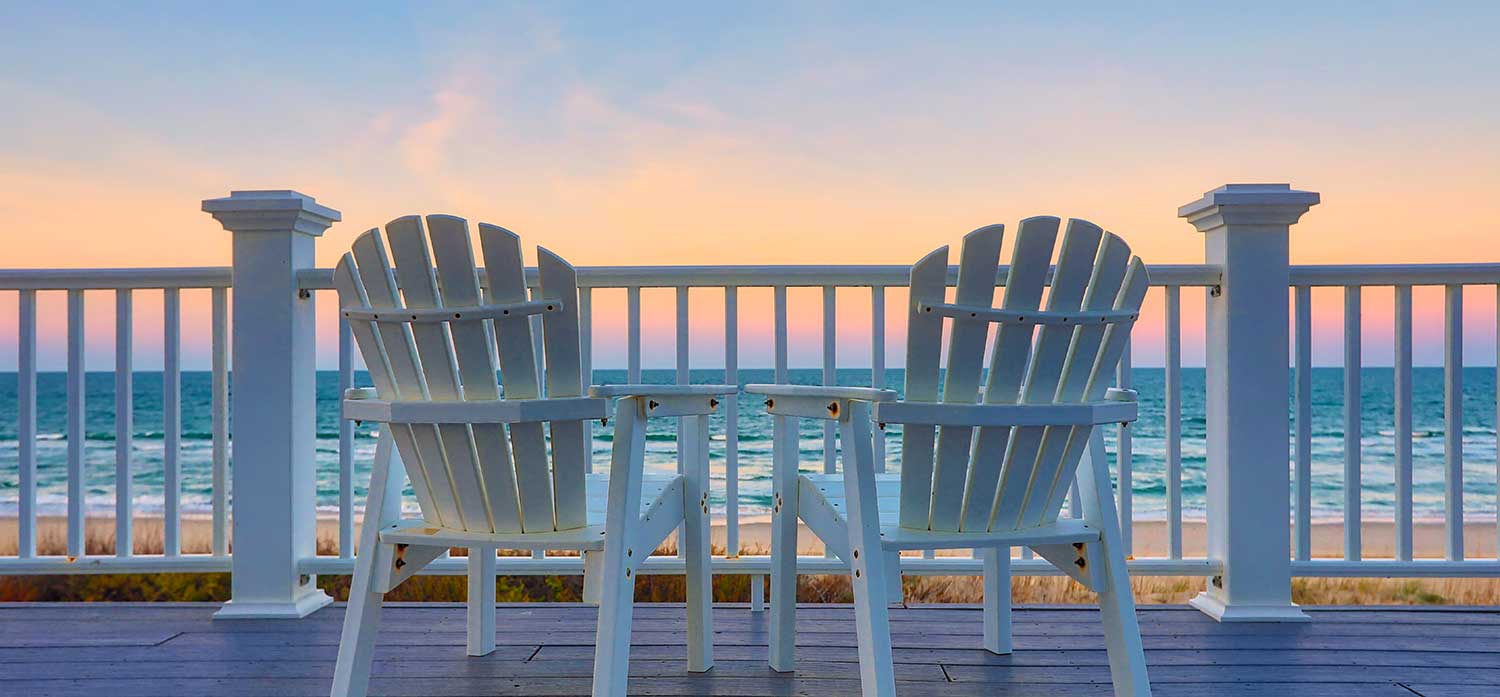If you own a beach home, you know the two seasons: the busy season and the offseason. The end of Summer –– and the beginning of the offseason –– is an ideal time to evaluate your home, checking for damage and maintenance needs.
Preparing your home for the offseason will create an optimal transition when the weather warms up and the busy season commences. This prep work also ensures the long-term integrity of your home by reducing the risk of pests, appliance failure, storm damage, and property damage.
Read on to learn the simple steps to prepare your coastal home for the offseason and the many benefits of proactive beach house maintenance.
Inspect Your Home for Necessary Repairs
You’ll want to conduct a thorough inspection if you are away from your beach home for over a few weeks. You must walk through your house and ensure no damages are pending repair.
Specifically, you will want to check for any signs of water damage or leaks. Coastal homes are at a higher risk for water damage because they’re exposed to high precipitation, severe storms, and the potential for corrosion due to salt. Problem areas for water damage include ceilings, walls, and basements.
Next, check for any cracks or imperfections in the foundation. Even if there were no foundation issues when you purchased the home, they could arise due to wind and water damage. Yearly inspections ensure no new damages have occurred.
Lastly, before leaving for the offseason, ensure your roof is in good condition, meaning it is properly sealed and leak-free. Doing so reduces the likelihood of returning to the water damage caused by a leaky roof.
Check That Appliances are in Working Order
You never want to return to your beach house to be met with any appliance failure. Before you leave, ensure all appliances function as they should. Check the air conditioning units, water heater, washer, dryer, refrigerator, dishwasher, and other large appliances.
Any smaller appliances or devices that require electricity, such as blenders, microwaves, lamps, etc., should be unplugged before leaving to reduce the risk of fire and conserve electricity while you are away.
The thermostat should also be set at a consistent temperature to regulate the temperature within the house. Some people choose not to run their AC units when they are not home, but creating a stable temperature can reduce the humidity in your space, preventing mold growth. It can also maintain the integrity of wood flooring, furniture, and other items (such as leather) that are especially susceptible to humidity damage.
Deep Clean and Perform Seasonal Maintenance Tasks
Once you have assessed the condition of your home and appliances, thoroughly deep cleaning your home is the next step to prepare for the offseason. A top-to-bottom clean allows you to return to a tidy vacation home free of unwanted pests, ready to use upon arrival.
Deep cleaning should involve emptying all unnecessary food supplies, changing light bulbs, removing cobwebs, washing linens, scrubbing floors, cleaning rugs and carpets, emptying dryer vents, and so on. Because coastal homes are subject to higher humidity and exposure to salt and sand, this could also be an excellent opportunity to condition your wood floors and leather furniture.
Don’t Forget About the Outside of Your Home
While the inside of your home requires extensive prep for extended absences, don’t forget outside maintenance and preparation. This includes evaluating your home’s drainage system for beach homes to ensure it directs runoff water away from the house. Next, check that gutters are free of clogs and are draining properly. If you have a pool or hot tub, water should be treated, drained, and covered as it typically would when not used.
Protect Your Home and Your Valuables
Coastal storms and hurricanes significantly threaten coastal communities even as the busy season ends. You can mitigate hurricane damage to your beach home even while away.
Firstly, install and close storm shutters. You should also ensure doors and windows seal properly and are wind resistant, especially on the side of the house facing the ocean. Lastly, you can turn off water lines if they are not used during the fall and winter.
You’ll want to protect your home from more than the natural elements. Burglaries are common in beach communities during the offseason. Fewer individuals stay in their beach homes during the winter, and certain people take advantage of their absences. Home alarm systems provide the peace of mind you need and want to ensure your beach house is secure.
Conclusion
Vacation homes provide a much-needed escape from the hustle and bustle of everyday life, and preparing well for the offseason is an excellent way to keep them a stress-free space. Staying on top of regular maintenance and doing some seasonal checks and cleaning will ensure your home is in perfect condition when you return.

